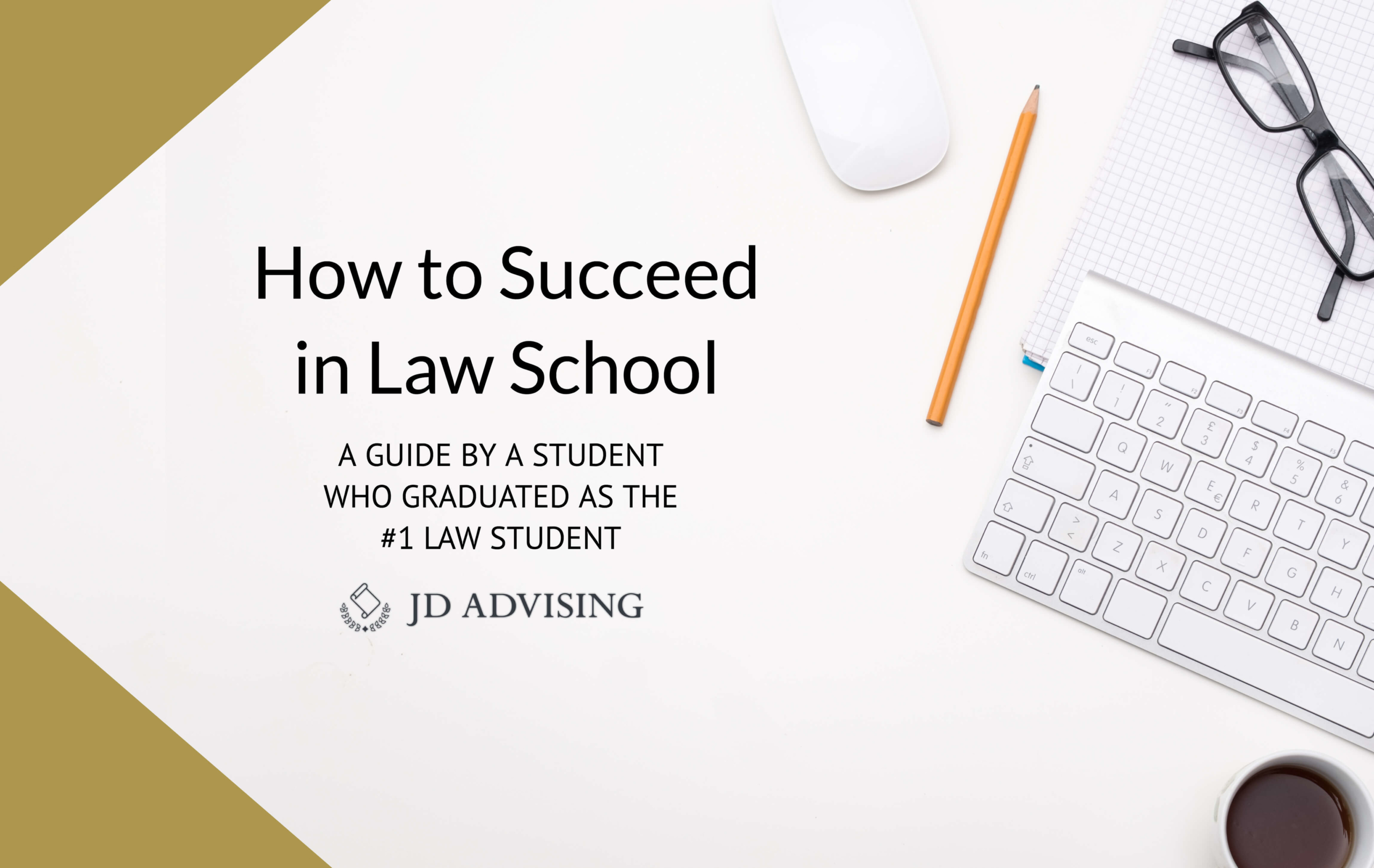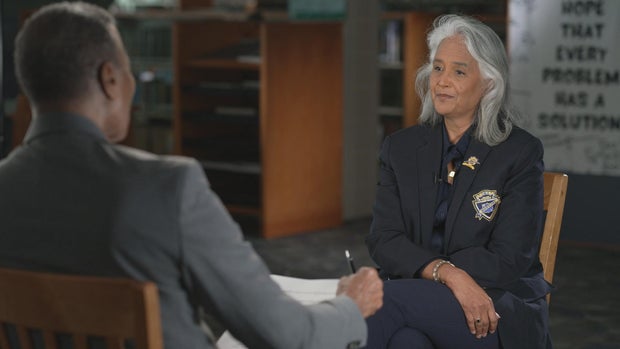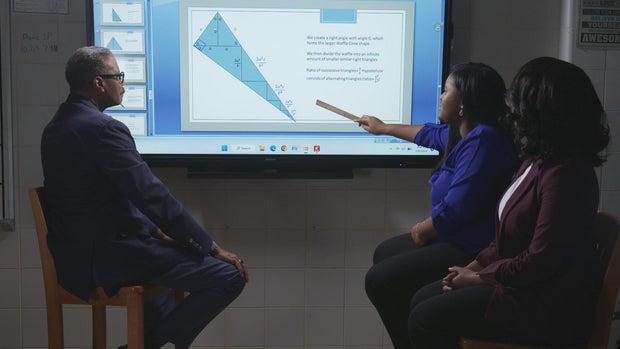How to Effectively Answer Law Essay Questions
I remember my first semester 100 level exams. I was just fresh from secondary school/JAMBITE, but I thought law exams were the same with secondary school exams. Heck, I didn’t even know that law exams were only theory questions. I was expecting to meet some objective questions, until I saw my exam questions.
Well, during the exams, I wrote what I could, and was confident my results would be awesome. After all, I had read for the exams well enough, and I used to think I was kind of intelligent.
I was in for a rude shock.
While I was in 100 level at the University of Ilorin, they still pasted everyone’s results on the notice board. So, when I heard the first result was out, I and a lot of my “fresher” colleagues went to check our results. I was expecting an A, or worse, a B.
I located my matric number on the pasted list and checked my first result. I had a C.
I was surprised, but I felt it was my first result, the others would be better.
The other results started trickling in. With each result pasted on the notice board, I realised I wasn’t so special after all. I had a series of C’s. For my 100 level first semester results, out a total of 10 courses, I had just one A, two B’s and the rest were C’s.
I was dejected, along with most other “freshers” that received this glorious welcome to Faculty of Law, University of Ilorin.
Instead of blaming the poor results on the indiscretions of my lecturers, I knew something had to be wrong with what I wrote. So, I asked for help. I asked a scholar(the best student in a level) in 400 level at the time, Adekunle Charles , to show me how to answer law questions. He showed me the way, and I can tell you that my results improved dramatically.
So, I am going to teach you exactly what he taught me, how to answer law exam questions. I will be focusing on law essay questions in this post.

What are Law Essay Questions?
There are two major types of law questions, essay questions and problem questions. Law essay questions require you to write an essay. Unlike problem questions that require you to advise parties in a scenario.
We have all been answering a level of essay questions right from secondary school, so it shouldn’t be new to you.
The following is an example of a law essay question:
There have been a lot of arguments for and against the principle established in the popular case of Adams vs Lindsell . Expatiate, through the cases.
To answer law essay questions properly, it must follow four rules. It must have The Introduction, The definitions, the body, and the conclusion.
Answering Law Essay Questions Rule 1: The Introduction
The introduction to your law essay question is the part where you let the lecturer know what the answer is all about.
In this part of the question, you shouldn’t directly go into answering the question. Instead, you are allowed to beat about the bush a little bit. Start with a general statement and then become more specific. At the end of the introduction, you should talk about the law essay question you intend to answer.
As an illustration, this is how the introduction to the sample law essay question above should look like:
The importance of feedback in the formation of a contract cannot be over-emphasized. It is trite that every contract needs to have an offer and acceptance, and there is the need to communicate the offer and acceptance between the parties. In a lot of instances, this isn’t really a problem since the offer and acceptance is done in real-time (face to face). However, there are instances where it isn’t in real time, like when the communication is done by post. In this type of situation, due to the process of posting a letter or parcel, the communication between the parties can experience some delays. This has posed some problems, like “when is an acceptance valid?” Upon posting, or upon reception? One principle that has been developed by the courts to solve this problem is the rule in Adams vs Lindsell . This work is going to analyse this rule and talk about the criticisms levelled against it, with special attention being paid to case law.
Answering Law Essay Questions Rule 2: The Definition
This is the part of the question where you give a definition to the major terms/keywords in the question. It is not necessary that it has to be a “term” per se. For instance, in the sample question I gave above, the major term is Adams vs Lindsell .
So, what you should do at this stage is to define the rule in Adams vs Lindsell . Since this is a case, you should talk about the facts of the case.
Your answer can go something like this:
The rule in Adams vs Lindsell is generally referred to as acceptance by post. The rule in this case was propounded by Lord Ellensborough in 1818. In this case, the defendant offered to sell some wool to the plaintiff. The defendant sent their offer by post. Due to an error in the posting, the letter got to the plaintiff on the evening of September 5. The plaintiff posted an acceptance the next day. If the letter was posted correctly, the defendant ought to have gotten the reply by September 7. So, when the defendant didn’t get a reply on September 7, he sold the wool to a third party on September 8. The plaintiff’s acceptance finally got to the defendant on September 9. Since the defendant had already sold the wool to a third party, the plaintiff sued for breach of contract. The major contention was when the acceptance would be valid. On the plaintiff posting it, or on the defendant receiving it. The court held in favor of the plaintiff that when it comes to contracts conducted by post, acceptance comes to fruition at the time of posting, not at the time of receiving.
Answering Law Essay Questions Rule 3: The Body
This is the major part of the answer to the law essay question. It is in this part of the answer that you demonstrate your understanding of the question and knowledge of the subject matter. In a lot of instances, what differentiates an A student from a C student is the fact that an A student cited more authorities in this section of the answer.
Using the sample question above, this part of the answer to the law essay question will look something like this:
Since the inception of this rule, there have been numerous arguments for and against it by jurists, scholars, and judges alike. In the case itself, the court, in justifying its decision stated that if acceptance wasn’t complete on posting, then there is the need for the offeree to require the offeror to inform him that he had received his acceptance, and so it goes on ad infinitum . Scholars like Professor Sagay have disputed this justification of the rule in Adams vs Lindsell . According to him, the process doesn’t have to go on ad infinitum. The offeree can assume that a contract has come into fruition when the offeror receives the letter, the same way the the offeror has to assume that there is a binding contract when, and if, the offeree posts a letter of acceptance. In the subsequent case of Household Fire Insurance Co vs Grant , the court gave some other concrete reasons for the adoption of the rule in Adams vs Lindsell . The facts of this case are as follows. The defendant applied for shares in the plaintiff company, and the plaintiff company assented by posting a letter. However, the letter didn’t get to the defendant, and as such, he didn’t know that the company accepted his offer. When the company got into liquidation, he was called upon to pay up his share. He resisted this, and thus the case was brought before the court. The court, in applying the rule in Adams vs Lindsell , held that he was liable to pay up his own shares, since a binding contract came into existence the moment the company posted its acceptance, regardless of the whether or not he received the letter. In justifying the acceptance by post rule, the court gave the following reasons: The post office is an agent of both parties. So, technically, a letter given to the post office is deemed communicated to the offeror. By posting the letter of acceptance, there is already a valid and binding contract. There is no need for any other act to bring the contract to fruition. The offeree has merely assented to the offeror’s proposals. The offeror is free to make it a term of the contract that there is no valid acceptance until he receives it. Any alternative rule would lead to fraud and delay in commercial transactions because the offeree would have to wait for confirmation from the offeror that he has received his acceptance. The rule is the most convenient compared to all other alternatives. However, the court’s decision was not unanimous. There was a dissenting judgement by Bramwell, L.J. He contended that if the basis of the rule was that it would cause hardship on the offeree, who might have already made arrangements based on the acceptance of the contract, there is also hardship on the part of the offeror who might act on the belief that his offer was not accepted. This is even more relevant where the offeror didn’t receive the acceptance like in the present case. All this goes to show that the rule in Adams vs Lindsell isn’t one that enjoys unanimous consensus in the legal community. Recent decisions by courts in the United States suggest a shift away from this rule of acceptance by post. In the case of Rhode Island Tool Co vs US F. Supp. 417 (1955) , the plaintiff’s made an offer to sell some bolts to the defendant. The defendant accepted by post, but the plaintiff discovered that they had quoted a very low price. To remedy this, they sent a telegram to the defendant revoking the offer. The telegram got to the defendant before the posted acceptance got to the plaintiff. The court held that the offer was validly revoked since the telegram got to the offeree before the plaintiff received the letter of acceptance. A similar thing happened in the case of Dick vs US F. Supp 326 (1949) . The facts of this case are quite similar to the facts in the above case. In this case, the offeree was the plaintiff and after accepting the offer by post, sent a telegram withdrawing it. The telegram got to the defendant before the letter of acceptance, and the court held that it was a valid revocation.
Answer Law Essay Questions Rule 4: The Conclusion
The conclusion to the law essay question is the final part of essay (just like the name suggests). There are two major ways you can conclude the essay: either by summarizing what you have written, or by giving a recommendation/comment.
To be on the safe side, you should just conclude by summarizing what you have written. You should also make it clear that you are concluding by including the phrase “In conclusion” at the beginning of the conclusion.
So, this is how the conclusion to the sample question would look like:
In conclusion, this work has highlighted the evolution of the rule in Adam vs Lindsell with special attention given to case law. This work highlighted the establishment of the rule, the justifications given by the court for this rule, and the criticisms against this rule. It finally showed a departure from this rule in other jurisdictions like the USA, due to the impact of new technology on commercial transactions.
Here’s the full answer to the essay question
So, this is how you should answer a law essay question. If you want to get a full picture of what the answer to the essay question looks like, here you go:
The importance of feedback in the formation of a contract cannot be over-emphasized. It is trite that every contract needs to have an offer and acceptance, and there is the need to communicate the offer and acceptance between the parties. In a lot of instances, this isn’t really a problem since the offer and acceptance is done in real-time (face to face). However, there are instances where it isn’t in real time, like when the communication is done by post. In this type of situation, due to the process of posting a letter or parcel, the communication between the parties can experience some delays. This has posed some problems, like “when is an acceptance valid?” Upon posting, or upon reception? One principle that has been developed by the courts to solve this problem is the rule in Adams vs Lindsell . This work is going to analyse this rule and talk about the criticisms levelled against it, with special attention being paid to case law. The rule in Adams vs Lindsell is generally referred to as acceptance by post. The rule in this case was propounded by Lord Ellensborough in 1818. In this case, the defendant offered to sell some wool to the plaintiff. The defendant sent their offer by post. Due to an error in the posting, the letter got to the plaintiff on the evening of September 5. The plaintiff posted an acceptance the next day. If the letter was posted correctly, the defendant ought to have gotten the reply by September 7. So, when the defendant didn’t get a reply on September 7, he sold the wool to a third party on September 8. The plaintiff’s acceptance finally got to the defendant on September 9. Since the defendant had already sold the wool to a third party, the plaintiff sued for breach of contract. The major contention was when the acceptance would be valid. On the plaintiff posting it, or on the defendant receiving it. The court held in favor of the plaintiff that when it comes to contracts conducted by post, acceptance comes to fruition at the time of posting, not at the time of receiving. Since the inception of this rule, there have been numerous arguments for and against it by jurists, scholars, and judges alike. In the case itself, the court, in justifying its decision stated that if acceptance wasn’t complete on posting, then there is the need for the offeree to require the offeror to inform him that he had received his acceptance, and so it goes on ad infinitum . Scholars like Professor Sagay have disputed this justification of the rule in Adams vs Lindsell. According to him, the process doesn’t have to go on ad infinitum. The offeree can assume that a contract has come into fruition when the offeror receives the letter, the same way the the offeror has to assume that there is a binding contract when, and if, the offeree posts a letter of acceptance. In the subsequent case of Household Fire Insurance Co vs Grant, the court gave some other concrete reasons for the adoption of the rule in Adams vs Lindsell. The facts of this case are as follows. The defendant applied for shares in the plaintiff company, and the plaintiff company assented by posting a letter. However, the letter didn’t get to the defendant, and as such, he didn’t know that the company accepted his offer. When the company got into liquidation, he was called upon to pay up his share. He resisted this, and thus the case was brought before the court. The court, in applying the rule in Adams vs Lindsell, held that he was liable to pay up his own shares, since a binding contract came into existence the moment the company posted its acceptance, regardless of the whether or not he received the letter. In justifying the acceptance by post rule, the court gave the following reasons: The post office is an agent of both parties. So, technically, a letter given to the post office is deemed communicated to the offeror. By posting the letter of acceptance, there is already a valid and binding contract. There is no need for any other act to bring the contract to fruition. The offeree has merely assented to the offeror’s proposals. The offeror is free to make it a term of the contract that there is no valid acceptance until he receives it. Any alternative rule would lead to fraud and delay in commercial transactions because the offeree would have to wait for confirmation from the offeror that he has received his acceptance. The rule is the most convenient compared to all other alternatives. However, the court’s decision was not unanimous. There was a dissenting judgement by Bramwell, L.J. He contended that if the basis of the rule was that it would cause hardship on the offeror who might have already made arrangements based on the acceptance of the contract, there is also hardship on the part of the offeror who might believe that his offer was not accepted. This is even more relevant where the offeror didn’t receive the acceptance like in the present case. All this goes to show that the rule in Adams vs Lindsell isn’t one that enjoys unanimous consensus in the legal community. Recent decisions by courts in the United States suggest a shift away from this rule of acceptance by post. In the case of Rhode Island Tool Co vs US F. Supp. 417 (1955), the plaintiff’s made an offer to sell some bolts to the defendant. The defendant accepted by post, but the plaintiff discovered that they had quoted a very low price. To remedy this, they sent a telegram to the defendant revoking the offer. The telegram got to the defendant before the posted acceptance got to the plaintiff. A similar thing happened in the case of Dick vs US F. Supp 326 (1949). The facts of this case are quite similar to the facts in the above case. In this case, the offeree was the plaintiff and after accepting the offer by post, sent a telegram withdrawing it. The telegram got to the defendant before the letter of acceptance, and the court held that it was a valid revocation. In conclusion, this work has highlighted the evolution of the rule in Adam vs Lindsell with special attention given to case law. This work highlighted the establishment of the rule, the justifications given by the court for this rule, and the criticisms against this rule. It finally showed a departure from this rule in other jurisdictions like the USA, due to the impact of new technology on commercial transactions.
So, here you have it, a guide to answering law essay questions. If you follow these guidelines, you should see an improvement in your grades. If you have any questions related to this, feel free to drop a comment.
P.S: If you are interested in an online course that makes it easy for you to get A’s in your law exams, you can check it out here: Get Access to Ace LL.B Exams
72 thoughts on “ How to Effectively Answer Law Essay Questions ”
Nice one bro. But between cramming the materials given by lecturers or understanding the material which one might likely improved one’s chance of getting good grade in essay questions from your own experience.
In law exams, there are some things you have to cram. Things like the cases and statutes. For the explanatory part of the note, it’s best you understand it.
its so excited for me to find this most simple blog for law student as a guide, tnx so much, may the sky be your limit
Where can I find the statutes and cases book? I’m a political student
Thank you. This really helped Can you post the one of problem questions
Thank you so much for taking out time to be a silver linen in the dark clouds of a law student who now, understands better how to answer law questions. The time you took to practically explain this using the Adam V Lindsell case is not a waste. I duff my hat sir.
This is really useful and m gonna attempt this semester’s exams in this way. Thanks sir.
TThank you.Please I need tips on problem question.
I’m currently working on a blog post that covers that
Thank you.I will be glad if that is done in no time.
Wow!!! This is beautiful. Please what about problem question? My exam’s two weeks from today
I’m currently working on a blog post on how to deal with that. It should be out before your exams.
Where can i find it?
Here: https://djetlawyer.com/irac-how-to-answer-law-problem-questions/
wow! this is wonderful and great. this sample has taught me a better way of answering law essay question seriously. bro you are good honestly.
Thanks. It’s cool that I’ve been able to help.
Thank you very much sir. I have understood the format now. But however, if a topic that doesn’t have cases. Is it wise or necessary to find cases to relate to such topics. For instance, Legal reasoning in judicial process.
There are always cases for all topics. You just need to know where to find them. Besides, no case is specifically designated for a subject, you can use any case, as long as it is relevant.
Thanks bro, my inquisitiveness to studying law brought me to your site. Pls how do I make my dream come true. This is my nineteen years of secondary education. I have NCE N B. ed in pols n edu. Mgmt.
Eeeermmm… Have you applied to any university offering law?
Thank you so much. This has helped me greatly
You’re very welcome
Thanks bro, looking forward to that post on problem question. This is appreciated.
im inspired, this is really excellent, though it looks like a lot of work and memorization, but it was really helpful. Thanks
Thank you so much for this great Tips. have been reading it over and over again.
You’re very welcome. I’m glad to have been of help.
This is really helpful. Thanks and job well done.
Thanks a lot Mr Olamide More strength to your elbow
I am becoming more addicted to your blog, ‘barrister’ Olamide ? . Do not stop at anytime. Let’s keep flying
Thanks a lot bro.
Hello Olamide. Thank you for this comment but i really need your help for something person as regards to law. How can i reach you pls? Thanks
Send me an email.
Am very greatful for the advice you have given it’s really great. A concern: is it always a must to cite case laws when answering law questions? And what happens when you only remember facts oof the case and you don’t rremember the parties?
Cases and statutes are what separates the work of a law student from that of a sociologist or political scientists. It is quite essential that you try to cite case(s) or statutes when writing a legal piece, as they give it more authority.
It would be ideal if you remember all. But if you can’t you can just write “in a decided case”. This might not give you full marks, but you’ll still get something.
Thank you very much for the advice am really greatful
I am a law student in Ghana KNUST. It is great work you’re doing. Though most of your posts are Nigerian Law, the ones that are general is helpful to me. Thank you.
You’re welcome. I’m glad to have been of help.
A big thank you Barr Olamide this article was really helpful a lot of Law student doesn’t know how to answer law essay question but by the grace of God we will try as much as possible to adhere your tips…my regards
please, what website can I get access to full law cases from.
You can check lawpavilionplus.com. However, you have to pay.
Thanks What of problem question
Check this out https://djetlawyer.com/irac-how-to-answer-law-problem-questions/
Thanks for the advice But what if u are not so good in beating around the bush to make your answer look more interesting I usually just go straight to the point cause of time factor and I really can’t even do it.
The “beating about the bush” part is the introduction part of the answer. It should just be like one paragraph.
Thanks What of how to answer problem question
do you have to identify each section by the heading; For example 1. Introduction 2. Definition 3.Body 4.Conclusion in order to delineate these sections for the attention of the marker.
No, you don’t need to identify that. IDBC is just a framework you should have at the back of your mind when writing exams.
Please can you make a write up to writing a very good memorial for should I say guidlines to writing a very strong legal arguements. In relation to moot and mock. Thank you
Thanks for the feedback. I’ll consider it.
Am really impressed at you strive towards making a soft landing for prospective and present law student generally. In some instances,what if the question is not possessing this semblance for example “Discuss the duty of a counsel to the court” In the abovementioned question what will be the definition part?
And also if am asked to answer a short question like “the relationship between law and morality” do I still need the IDBC format?
Lastly,Is this format of answering questions only applicable in legal methods or it can serve all law essay questions?
I will be glad if you can answer me respectively…?
Thanks so much I’ve learnt a great deal, please can you post that of problem question? God bless you.
Good evening, Please I want you to out me through a law assignment (Principles of equity). The question is: ” Critically examine the contribution of equity to jurisprudence”
Thank you very much sir i have really learnt so much from your work today and i believe that before the end of this semester my grades will improve and also my knowledge and understanding on how to answer problem questions and law essay questions will improve. God bless you sir.
Please can I get your username on social media platforms…I would love to know you…you dont know how much this write up just helped me
I’m glad to have helped. I’m not so active on Social Media though. However, you can connect with me on linkedin here https://www.linkedin.com/in/olyray/ and twitter here https://twitter.com/olanrewajuolam6 . ALso, check my author bio for other social media platforms.
Okay..please can I get some materials on human rights..precisely regional protection of human rights…I can’t seem to permutate it to my satisfaction
I don’t think I currently have materials on that.
Pls can I get past questions for introduction to legal method and introduction to Islamic law
I don’t really have that at the moment.
zainab you are here…… wawu i never believed til now
Mr.Can you please help me with this: A was driving along Lagos Ibadan expressway on the 24th July, 2020 and he got to Interchange at about 5am, he then saw a BMW 2015 model under the bridge with a tag ‘for sale’. He called the no on the tag and bought the car at the rate of #500,000.00. two days after, as he was driving the vehicle on Lagos Island, he was stopped by the Police and was arrested for a stolen vehicle. He later located the seller who was also arrested by the police, he was released on bail and the vehicle was recovered from Mr A being a stolen vehicle. Mr. Intend to sue the seller for the refund of his money or to sue the police that he bought the goods in accordance with Sales of Goods Act. 1. Please advise Mr. A 2. Will your advise be different if Mr. A had bought the car at Ladipo Car Market?
Interesting and helpful will be waiting on problem question too.
Hello. Problem questions are treated here:
https://djetlawyer.com/irac-how-to-answer-law-problem-questions/
Thank you very much sir. It’s a blessings to cross paths with you going through this work. Question. Is it possible to just cite the case without giving facts of that case? For instance as was decided in Shaw v DPP 1962 AC 220 and then you continue with your analysis?
Yes. You can.
Good morning. I’m very new here. This was really helpful, thank you so much for these tips.
I however struggle with problem questions majorly. I would like to know if you have a post on how to answer problem questions??
Wow thank you so much sir. I have really been struggling with answering law essay questions This has enlightened me. I really hope I apply it well
Good morning. I’m very new here. This was really helpful, thank you so much for these tips.
Thank you very much sir . I have finally gotten a well explained answer on how to answer law questions I’m greatful 🙏
Leave a Reply Cancel reply
Notify me by email when the comment gets approved.
Join an online course that makes it easy for you to get A’s in your law exams, you can check it out here: Get Access to Ace LL.B Exams.

Answering Essay and Problem Questions

How A Good Lawyer Can Help You Obtain Disability Benefits And Get Your Life Back On Track

The Ugly Side of Online Matchmaking: How Trademark Infringements and Exorbitant Legal Fees Maintain Match Group’s Dominance

- Tips for Students
- essay writing
- Law Student
- problem questions
- tips for students

Article written by Imaan Fatima, University of Strathclyde Scots and English LLB Student.
There are two main types of questions you will come across when studying law: essay questions and problem questions. Both styles of questions can cover any area of law but require very different approaches when being answered. Every university will have a different grade criterion, so it’s important to become familiar with yours. However, there are some general tips which can be used by all law students to help best answer these questions.
Essay Questions:
I’m sure most of us have encountered these types of questions. We’re usually asked to critically evaluate, compare, or discuss some sort of legal issue.
These questions require a structured answer with an introduction, a main body, and a conclusion. But before you even attempt to produce an answer, you need to create a plan. This is crucial because it will help you understand what is being asked, set out the key issues you wish to discuss and the sources you want to use.
Your introduction should be relatively short – roughly 10% of the overall word count. It should clearly outline what the question is asking you to do and how you propose to go about answering this question to arrive at an appropriate conclusion. The main body of your essay will consist of legal arguments. Each paragraph will likely answer a different aspect of the question, but they should be coherently ordered and flow into one another, instead of reading as a sequence of unrelated points. Finally, you’ll have to draw together your arguments, without introducing any new pieces of information, to reach a reasoned conclusion.
When writing an essay, think about what the examiner is looking for and the skills that are being tested: communication skills; analytical skills; research skills; and the ability to construct an argument.
Problem Questions:
Unlike essay questions, problem questions are presented as lengthy scenarios in which one or more legal disputes arise. As a law student, you will be expected to discuss these disputes and explain how they are likely to be resolved, if possible.
The best approach to answering problem questions is the IRAC method, which stands for issue, rule, application, and conclusion. This is a four-step process that requires you to identify the legal issue; identify the relevant legal rule; apply that rule to the issue at hand; and reach a conclusion to answer the question. It’s important to remember that the IRAC method should never be applied to the question as a whole. Instead, your answer should be divided based on the number of separate legal issues which occur.
Problem questions often have no single correct answer, and the facts will likely contain a number of grey areas, which means you might not always have enough facts to provide a conclusive answer. However, you can also gain marks by stating that some information is missing and hypothesising what the outcome would be if certain facts were included.
Whereas essays are designed to test your ability to discuss and critically evaluate the law, problem questions are more concerned with the application of legal principles. This means simply having knowledge of the law isn’t enough. Neither is writing everything you know about the topic and hoping to receive marks for it. You need to be able to identify relevant information within the question and apply legal reasoning to the facts.
Imaan Fatima
Related posts.

A picture with the writing Law
LLMs – Demystifying the World of (Voluntary) Further Legal Study

Navigating Exam Season: Practical Tips for Students

Curing Britain’s Sickness Culture
Comments are closed.
- 0 Shopping Cart $ 0.00 -->

Did you fail the bar exam? We have lots of free resources to help you regroup for your next attempt! Check out our guide on what to do if you failed the bar exam , as well as our guide on hiring a bar exam tutor !
Explore Your Path to Bar Exam Success! Book a free 20-minute consultation with our experts to find the best bar prep services tailored to your needs. Schedule your call today !
🌟 Boost Your Bar Exam Prep with JD Advising! Looking for one-on-one attention in your bar prep? Our expert bar exam tutors are ready to help you pass! Sign up early before spots fill up!

How do I answer law school exam questions? (an in-depth guide)
Here, we give you an in-depth guide on how to answer law school exam questions. This is a step-by-step process for approaching law school exams.
Law school exams are very different than exams you may have taken in undergrad . Because they are different from the exams you are used to, you need a novel strategy if you want to answer the law school exam questions successfully and receive high scores on your law school exams. Many students do not know how to best prepare for law school final exams (in part because law schools do not teach students this!). In this post, we break down the process of answering law school exam questions into a few simple steps.
How to answer law school exam questions
Preparation for answering law school exam questions.
Make your outlines!
Before you learn how to answer law school exam questions and attempt to answer law school exam questions, it is crucial that you have outlines (that you have made) and that you have familiarized yourself with your outlines well enough so that you feel like you know them. Here we have an in-depth guide to outlining . We also have tips on how to outline using diagrams , and places you can find outlines online if you want to review examples of outlines.
Learn your outlines!
If you have outlines, but are struggling to learn or memorize them, you are not alone. Many students struggle with this aspect of studying. Check out this post for seven fantastic tips on learning your law school outlines, which is outlined previously in this guide!
Why do you need to outline and learn your outlines first? Because the essential tool that you need prior to answering exam questions is knowledge of the law! This is the key tool, or your secret weapon, that will help you work your way through exam questions. After all, exam questions will ask you to apply the law to a fact pattern . You cannot apply the law if you do not even know what the law is! No strategy, tool, or tip will be able to get you a high score on a law school final exam if you do not make an effort to truly know the law.
General format of a law school exam
Your law school exam will generally be a story (called a “fact pattern”). You will be expected to go through the story, sentence by sentence, and spot the issues. For example, you may have a fact pattern like this:
Anna is walking down the street, texting her friend. She is not looking where she is going. A driver, Bob, who is trying to get directions on his phone, does not see Anna and hits her. Anna falls to the ground and breaks her tailbone. Normally, the impact would not cause a broken tailbone but Anna has a brittle bone disease which causes her to get hurt very easily. Anna goes to the doctor later that afternoon. Anna fills out a form that clearly states she is allergic to various medicines. The doctor accidentally gives her medicine that she is allergic to—a medicine that Anna had listed on her form that she was allergic to. Anna has to stay in the hospital for five days to be treated for her allergic reaction. The visit for the broken tailbone cost Anna $20,000. The five-day stay in the hospital cost Anna $50,000. Discuss the issues.
Your job will be to use the IRAC method, discussed below, to identify the issues, state the rules of law, apply them, and then arrive at conclusions for each issue spotted. You can see that the call of the question is open-ended (“Discuss the issues”) and that you are not actually told which issues to discuss. Note that your professor may give you several short fact patterns (like the one above) or may give you longer fact patterns (sometimes one to five pages long).
Step one: learn to answer exam questions using the IRAC method
The IRAC method is a commonly used method for writing law school exam answers. The letters in IRAC stands for the following words:
A = analysis
C = conclusion.
The IRAC method is formulaic. To use IRAC one essentially fills in the blanks of the following formula for each issue that one spots: “The issue is ___________. The rule is ___________. A court would analyze it as follows: [apply the law to the facts]. In conclusion, ___________ will likely win.”
The IRAC method, in its most basic form, is not the best way to answer exam questions. It is a bit too simplistic and formulaic. However, it is a great start for learning how to answer law school exam questions. Further, as you practice it, (and as we show you below) you will find yourself improving the analysis section significantly in order to write a sophisticated exam answer.
It is important that you identify most, if not all, of the issues in your exam fact pattern. Write down the issue. Explicitly say, “The issue is whether . . . .” Note that many times, the fact pattern will not give you any hints as to what the issues are. It will just say “Discuss the issues” or “Discuss.” Thus, it will be up to you to spot all of the issues.
Issue-spotting is important because if you don’t spot the issue, you will not be able to apply the relevant law and analyze it (and this is what you get the most points for!). To become a good issue-spotter, practice answering exam questions and comparing them to model answers. This will help you get an idea of the most commonly tested issues and will help you spot these issues on your final exam.
As an example, in the example fact pattern above, some of the issues are negligence, contributory negligence, foreseeability of medical malpractice, eggshell-skull rule, and joint and several liability. All of these issues should be discussed separately.
For each issue that you identify, state the rule of law that governs the issue. Make sure that you state the relevant rules of law. Some students will write down all of the rules of law that they have learned to try to impress the professor. However, you don’t get points for these and you are wasting time writing them all down.
The analysis is the most important part of your exam answer. It is the section where you apply the law to the facts. The key to writing an average IRAC answer and an outstanding A+ answer is to develop the analysis by making lawyerly arguments on behalf of the plaintiff and on behalf of the defendant for each issue that you spot. When you get to the “A” in IRAC, ask yourself: “What would the plaintiff argue?” then ask yourself, “What would the defendant argue?” State who has the better argument. Make creative arguments, and make all of the reasonable arguments you can. This is the most important part of your essay.
When you make arguments (and when you respond) for each side, refer to specific facts in the fact pattern. Arguments can be made using the following strategies:
- Sometimes you will argue that the facts should be interpreted one way or another.
- Sometimes you will argue that the law should be interpreted one way or the other.
- Sometimes you will cite policy reasons for why the case should turn out one way or another.
- Sometimes you will argue that the traditional rule should be applied instead of the model rule (or vice versa) or that the common law rule should be applied instead of the statute (or vice versa), or that the majority rule should be applied instead of the minority rule (or vice versa).
- Sometimes you will argue that the holding in one case should be followed rather than the holding in a different case.
Most of your arguments will be based on classroom discussion. That is, if your professor really emphasized contradicting rulings of two different cases, you would mention that in your argument section. If your professor focused instead on common law rulings vs. statutory law, you may make arguments based on that.
Even if the question says “you are counsel for the defense,” you still have to recognize (and state in your answer) arguments that the plaintiff would make. After all, the best defense lawyer will anticipate arguments by the plaintiff.
This takes your answer out of the simple IRAC format because you are not just applying the law to the facts, instead you are arguing and analyzing from both the plaintiff’s and the defendant’s perspective in a lawyerly manner.
Last, state which party is more likely to win and explain your reasoning. The conclusion answers the question, “Who has the better legal argument?” The conclusion that you arrive at is not as important as the analysis that you provide.
Do not leave your conclusion too inconclusive (e.g., “It depends on what the court decides. Either could win.”). A conclusion that is inconclusive is not a conclusion at all! However, do not leave your conclusion too decisive either (e.g., “The plaintiff will definitely win” or “The defendant’s argument is baseless.”). It is best not to use extremely strong words or phrases unless they truly are appropriate (and this will happen very rarely for the big issues!). The keywords to use are “probably” or “most likely.” Say something like, “For all the reasons discussed above, the defendant is most likely to win on this issue.”
Step two: practice exam questions
It is not enough to have a good strategy for answering exam questions. You have to also practice that strategy . If you were trying to get good at painting, reading books about painting all day wouldn’t be enough—you would actually have to practice painting! It is the same with answering exam questions. It is not enough to have some skills or strategies. Instead, you have to practice those skills and strategies.
The three primary sources that you should use to practice applying what you know are:
- (1) Exams that your professor has given students in the past (check with your professor) ***This is by far the best resource!*** Make sure to obtain model answers or sample answers if possible.
- (2) Problems in supplements— such as Examples and Explanations or Glannon Guides . This is a great resource for practicing all throughout the semester because you can practice analyzing one issue at a time and hone in on your skills.
- (3) Other resources that contain exams with model answers: The best thing to do is Google, for example, “Contracts exam model answer.” You will find updated Contracts exams with model or sample answers. We also have compiled a great resource of practice exams here if you want to save yourself some time Googling it!
After you write your exam answers, always spend a long time comparing your answer to the model answer and grading your answer. This is how you will improve on your exam-writing skills. You will be actively learning the law, giving yourself feedback, identifying your strengths and weaknesses, and find yourself improving over time! If you do this regularly, by the time you get to the final exam, you will know what to expect, and it honestly won’t seem like that difficult or daunting of a task because you will have already done it so many times! I graduated as the #1 law student and got A+’s in over half of my law school classes. Practicing exams ahead of time was a huge reason I was able to achieve that accomplishment.
If you are unsure how to compare your answer to the model answer, we recommend that you start by asking yourself these questions:
Questions to ask when comparing your answer to the model answer
- Did I spot the same issues that the writer of the model answer spotted?
- Did I miss important issues? Which ones? How will I avoid this in the future?
- Did I include issues that the model answer did not include? If so, are these issues relevant?
- Did I clearly lay out all the rules and elements of law for each issue?
- Did I discuss laws that weren’t relevant? How can I avoid this in the future?
- Did I make arguments on behalf of each party (where applicable)?
- Did I analyze the problem as in-depth as the model answer did?
- Did I spend too much time analyzing an issue that should obviously turn out in one party’s favor?
- Did I know enough law to fully analyze the question or do I need to review my outline more?
- Was my conclusion too vague? Was it too strongly worded?
- Was my conclusion correct (or at least arguably correct)?
- Did I spend too much time restating facts or conclusions?
- Did I answer the exam in the appropriate amount of time?
- What are my strengths?
- How can I capitalize on my strengths and make them even better?
- What do I need to practice more?
Commonly-asked questions on how to answer law school exam questions
What is the most important resource i can consult if i have limited time.
The best resource at your disposal is your professor’s old exams. These show you what the professor likes to test and can help you get used to their format and their exam approach. Make sure that you obtain any model answer or sample answer that goes with the exam. Some professors do not make past exams available for review. Some only offer a couple of prior exams available for review, in which case it is a good idea to seek exams using the other resources mentioned above.
What if my professor includes multiple-choice or short answer questions?
It is becoming more common to include a multiple-choice question section and/or a short answer question section on law school exams. Below we tell you how to answer law school exam questions that contain multiple-choice, short answer, or other nontraditional questions.
Multiple-choice
If your professor includes multiple-choice questions on your exam, it makes sense to get as much practice answering multiple-choice questions as you can before your exam. Do a Google search for questions or, if you have time, order books online with multiple-choice questions. Note: we also have hundreds of law school multiple-choice questions in our JD Advising study aids (which you can sample for free!) Many bar exam review books will have multiple-choice questions that cover the material in first-year law school courses. It is amazing how much you can increase your score through practice!
Make sure that when you begin to practice answering multiple-choice questions that you go through the questions slowly and methodically. Dissect each question. After you read the question, ask yourself what legal issue is being tested and what legal rule you need to know to answer the question. If you do not know the legal rule, look it up in your outline. Lastly, go through the answer choices and explain why one is correct and why the other three are incorrect. If you complete all of the questions slowly and methodically when you practice, you will learn the legal rules better and you will also internalize the best way to approach questions on your exam. You will not fall for tricks!
Closer to your final exam, work on speed. Practice answering several questions each day and make sure you are able to answer them in the time allotted.
If you are looking for a lengthier article about how to improve your score on multiple-choice questions, see this post on how to answer multiple-choice questions : it is geared toward bar exam students but can be helpful to any students taking a multiple-choice exam!
Short answer
If your professor includes short answer questions on his or her exam, get your hands on as many short answer questions as possible. If your professor releases any past exams, focus on these first! Also, consult a supplement. Many supplements have plenty of short answer questions for you to answer. (Our law school study aids contain hundreds of short-answer questions written by top law professors!)
Combination
If your professor gives a combination of questions (some multiple-choice, some essay) spend your time answering both kinds of questions when you practice. Allocate your time based on how your final exam score is calculated. If, say, only 10% of the exam is based on your multiple-choice score, and 90% is based on your essay score, focus primarily on practicing essay questions. If it is the opposite, focus primarily on practicing multiple-choice questions!

Go to the next topic, Where can I find law school practice exams?
Seeking success in law school.
- Benefit from personalized one-on-one tutoring by our seasoned law school tutors.
- Explore our NEW and highly acclaimed law school study aids , available for a free trial.
- Introduction
- How to Succeed in Law School: Introduction and Table of Contents
- An Overview of How to Succeed in Law School
- Part 1: 1L Basics – What is 1L year?
- Overview of 1L year: what classes will I take my first year of law school?
- Why does the first year of law school matter so much?
- What are the differences between the first year of law school and college?
- What law school supplies do I need to succeed in law school?
- Just for fun! Top 10 Latin words for law students
- Part 2: How to Succeed on Law School Final Exams
- Law school success: the theory
- An overview of how to succeed on law school final exams
- Step 1: Outline
- How do I create a law school outline? (An in-depth guide)
- When should I start my law school outlines?
- How long should my law school outline be?
- Where can I find law school outlines?
- Step 2: Memorize your outlines
- How do I memorize my law school outlines?
- Step 3: Take practice exams
- What are law school finals like?
- How do I answer law school exam questions? (An in-depth guide)
- Where can I find law school practice exams?
- Step 4: Make an effective law school study schedule
- What should my weekly law school study schedule look like?
- What is an example of a daily law school study schedule checklist?
- Part 3: Other Important Law School Skills
- What are “cases” in law school?
- How do I brief a case?
- What is an example of a law school case brief template?
- How do I speed-read cases in law school?
- How to prepare for class in law school
- Why is it so important to go to class in law school (and pay attention!)?
- How do I prepare for class in law school (without wasting time)?
- What are some law school note-taking tips and shortcuts?
- Socratic Method
- What is the Socratic Method in law school?
- How do I survive the Socratic Method in law school?
- Networking in law school
- Is it important to network in law school?
- Part 4: Law Student Frequently Asked Questions (FAQ) and Other Resources
- Law student FAQ
- Is a law school tutor worth it?
- What are some other JD Advising resources for 1Ls?
- Download Guide
After working with [my law school tutor], Jonathan, I earned grades high enough to land a summer associate position at a big law firm as a 1L. Jonathan was great because not only was he well versed in my 1L courses, but he also is a successful lawyer and a graduate of my law school. It was great being able to talk to someone who not only understood the rigor of my 1L classes, but also had proven tips for success in and beyond law school.
My [law school] tutor Melissa was very flexible to my needs and interests. She helped me achieve Honors grades in three of my four doctrinal courses of my 1L Fall semester. Very grateful for this opportunity.
- Privacy Policy
- Terms of Use
- Public Interest
By using this site, you allow the use of cookies, and you acknowledge that you have read and understand our Privacy Policy and Terms of Service .
Cookie and Privacy Settings
We may request cookies to be set on your device. We use cookies to let us know when you visit our websites, how you interact with us, to enrich your user experience, and to customize your relationship with our website.
Click on the different category headings to find out more. You can also change some of your preferences. Note that blocking some types of cookies may impact your experience on our websites and the services we are able to offer.
These cookies are strictly necessary to provide you with services available through our website and to use some of its features.
Because these cookies are strictly necessary to deliver the website, refusing them will have impact how our site functions. You always can block or delete cookies by changing your browser settings and force blocking all cookies on this website. But this will always prompt you to accept/refuse cookies when revisiting our site.
We fully respect if you want to refuse cookies but to avoid asking you again and again kindly allow us to store a cookie for that. You are free to opt out any time or opt in for other cookies to get a better experience. If you refuse cookies we will remove all set cookies in our domain.
We provide you with a list of stored cookies on your computer in our domain so you can check what we stored. Due to security reasons we are not able to show or modify cookies from other domains. You can check these in your browser security settings.
We also use different external services like Google Webfonts, Google Maps, and external Video providers. Since these providers may collect personal data like your IP address we allow you to block them here. Please be aware that this might heavily reduce the functionality and appearance of our site. Changes will take effect once you reload the page.
Google Webfont Settings:
Google Map Settings:
Google reCaptcha Settings:
Vimeo and Youtube video embeds:
You can read about our cookies and privacy settings in detail on our Privacy Policy Page.
How To Answer Law Questions (Essay & Problem Questions)
- Post author: Edeh Samuel Chukwuemeka ACMC
- Post published: July 4, 2020
- Post category: Legal Articles / Scholarly Articles
How to answer law questions: Over the years, law schools and law universities have evolved two methods of asking test or exam questions. They are the problem and essay questions patterns. Basically, these two ways of asking questions require a totally different ways of answering them that are different from the traditional ways of answering questions in the primary, secondary, and tertiary institutions.
One major problem that new law university intakes encounter, is the fact that many of them usually have the mindset that where they are (university) will be the same with where they are coming from (secondary school); and because of this, they tend not to ask questions about how well to answer their law questions thus going on to use the traditional or general method and ending up not getting the expected result or even failing.
In this article, I am going to be expounding on the way of tackling law essay questions for the benefit of students. However, what I will be discussing is the general rule which is subject to what your specific tutor or lecturer may require from you.
So, it is advised that in as much as you learn how to generally answer law essay questions, you should pay attention and understand your lecturers so as to give him/her what their individual preferences are, like asking you to write a concised answer or be elaborate, or add this and remove that etc.
Differences between cross-offers and counter-offers
Hierarchy of courts in Nigeria
Mojekwu v Mojekwu: Facts, Issues and Decision of the court
Table of Contents
Differences between Law problem and Essay Questions
As you may know, Law problem questions are not the same as essay questions. Problem questions are those law questions that tell live stories about the relationship between people and then require you to identify legal issues from those interactions, address the issues with relevant authorities and then to advise the parties on their different rights using the IRAC method.
It is important to note that a single problem question could have a series of different events which are based on different legal principles.
On the other hand, an essay question is a question which requires an individual to write on legal principles without using a particular format like the IRAC method.
Notminding the fact that you are not required to advise the parties or to use a particular method to answer your question, you have to have some mental steps at the back of your mind so as to make your work enticing and arranged before your tutor or Lecturer.
HOW TO ANSWER LAW PROBLEM QUESTIONS USING IRAC METHOD
Just like I explained at the beginning of this work, a problem question is a question that test candidates by giving them stories/cases to solve. Here, law students will be expected to draw out the issues of law in the story, as it relates to what they have been taught in the classroom.
Take for instance, a problem question on customary law might tell the story of a man who beats his wife because the custom provides for it. After explaining the story, students will be required to either provide the position of the law on the issues raised in the story or to advise the parties in the story.
The most acceptable way of answering law problem questions is through IRAC method. IRAC is actually the best because it makes it very easy for students to explain any legal principle with authorities in the simplest format. Below are the things you must know about IRAC method of answering law questions.
Meaning of IRAC
The word “IRAC” is an acronym which stands for:
- Issues – I
- Rule of law – R
- Application – A
- Conclusion – C
Note that if you must answer problem questions using this format, you must have this acronym at the back of your mind. If you miss any step, then you are getting the whole question wrong.
Now, to make sure that you understand the steps listed above, i will take my time to explain what you are supposed to do in every step. Remember, this is to teach you how to answer law problem question using IRAC method.
Your first concern is to determine the issue or issues implicated in the question. This determination involves asking yourself, what is the problem sought to be addressed in the case?
Example: What is the liability of a master regarding tort committed by his servant while engaged in a conduct expressly prohibited by the master?
The importance of accurate identification of the issue(s) is that it narrows your response to the gist of the question.
Once you accomplish this goal, you will know automatically that there is no need to state, for instance, that “the tort borders on vicarious liability” or for you to describe general elements of the tort in question.
Your task is to focus only on those elements or information that substantively (not tangentially) speak to the issue(s) you have successfully identified. Relevance is the key here. Recall my admonition, “ the more you write, the more you expose your ignorance .”
Note that you are not expected to call the names of parties in the story in the issues because they are issues for determination in law. You can only mention the names of parties in the story or case given to you when you reach third stage which is APPLICATION
Also read: Are lawyers liars? The truth as to whether lawyers are liars
RULE OF LAW
The “R” or Rule (rule of law) in IRAC is also called “reasoning.” This is because the applicable rule of law is reasoned from the facts of the case. As you think through the problems presented, aided by the issue you have successfully identified, the rule will emerge. What rule of law will guide the court in reaching a correct decision, assuming the same facts?
This is the question that you need to ask your self; it is also the question that you need to address. A rule of law in vicarious liability, for instance, is that “ a master is liable for the acts of his servant, even when expressly prohibited, so long as the servant acted within the scope of his employment. ”
Under the rule of law, students are expected to cite their authorities. Authorities here can be cases, statutes, dictum of judges, articles which are related to the issue in question. It is very important that you cite authorities because that is what will back up the rule of law and legal principles in the case.
APPLICATION:
This is where you apply the rule of law to the issue(s) you have raised. By doing this, you are applying the rule of law to the actual story in the problem question given to you. In the application, you are expected to pick those authorities and rules of law that concerns the issues raised and apply them to the matter effectively.
Always pay attention to exception(s) to the general rule, if any, and clearly outline/justify any distinctions that might be helpful to your argument. By constantly reminding yourself of the issue(s), you are bound to succeed in steering yourself away from irrelevance.
A great analysis is targeted to the issue(s) identified and is judged by the degree of focus/precision as well as the presentation (language/expressions used in articulating your argument).
Finally, the conclusion (“C”) . A few sentences would suffice to wrap up your discussion. Briefly state the outcome of your analysis. Where the question requires that you advise the parties, the conclusion is the best place to do that.
Simply tell each of the parties their rights and persuade them to sue the when the need be. Here, you can also rebuke the party in default in the case and tell him why he/she is at fault.

Okay! Now that you know what all the letters in the acronym IRAC entails, I will give you an example of how a perfect law problem question is answered. The example below is a problem question that borders on the law of defamation.
If you are a student and you don’t know anything about the law of defamation, don’t worry. Just keep reading. You will still be able to understand the steps taken in every section.
Also read: List of less competitive universities in Nigeria (2020)
Sample of a law problem question answered using IRAC method
The Daily Trumpeter, a popular Newspaper in Enugu recently published a report of the proceedings of the Enugu State High Court in a land case between Chief Okoto and Barrister Akuepue under the caption ‘Judge calls a popular Enugu Lawyer: ‘A Crook and a Land Speculator”.
In the article, the newspaper reporter, Ade also stated thet Nigerian lawyers are in the habit of using their knowledge of the law to deprive innocent ‘laymen’ of their land. Barrister Akuepue and Barrister Ikpeama, another popular lawyer based in Enugu have sepaprately sued Joe, the edito of The Daily Trumpeter and Ade for publication.
Issue 1: Whether Newspaper Publishers can be liable for publishing court/tribunal proceedings
Issue 2: What must one prove in order for his defense of ‘fair comment’ to be successful
Issue 3: What is the legal position on defamation of a class or a group of person
RULE OF LAW:
Defamation refers to the publication of a statement which is calculated to injure a person and cause right-thinking members of the society to shun or avoid him, or even cause them to hate him and also convey an imputation on him which is injurious to his office, trade or profession – s.137 Enugu State Torts law, cap 150 2004(which shall hereinafter be called ESTL), Sketch v. Ajagbemokeferi.
People are thus warned against idle gossip which may likely impugn another person when communicated to a third party. Defamation may either be in the form of libel which is in a permanent form such as newspaper publication, television or radio broadcasts; or otherwise in slander which has a transient nature usually verbalized or through gesticulations conveying a defamatory connotation.
For an action in defamation to succeed, the following essential elements must be proved, as a thing of necessity:
The words complained of must be defamatory:
If right-thinking people of sane minds would think less of an individual or shun and avoid him due to a statement, then this element may be said to have been successfully proved.
Defamatory words must refer to the plaintiff:
It is not sufficient that the defamatory statement described a person merely by his name Akintla v. Anyiam . It is enough where he is identified by his initials, post, Photograph, or even his office – Dafe v. Teswinor.
The words complained of must be published:
It has been held in a vast litany of cases that it is not the publication of defamatory statement but the publication that grounds a cause of action. In fact, in Pullman v. Hill , Lord Esher, Master of the Rolls said thus ‘‘ Publication is the making known of the defamatory matter after it has been written to such person other than the person to whom it is written’’ It therefore follows that publication in itself is what grounds a cause of action- s. 141 ESTL .
Also, communication to the plaintiff himself cannot ground a cause of action for the purposes of determining liability in defamation because defamation is injury to ones reputation and protects not an individual’s opinion of himself but the estimation in which others hold him – Okotcha v. Olumese.
However, even if a person has been alleged to have defamed another, there is an array of defenses open to him. Such defenses are:
- Unintentional Defamation
- Innocent dissemination
- Justification( or truth) – s. 163 ESTL
- Volenti Non fit injuria – Chapman v.
- Fair comment- s. 194(1) ESTL
Under the defenses of privilege , we have what is known as absolute privileges and also qualified privileges. Circumstances under which the defense of qualified privilege can arise are varied but for the purposes of our case, we have an occasion known as Statements made in performance of a legal, moral or social duty – s.178 ESTL .
In the connection above, for such an occasion to arise, the person giving out information which is alleged to contain defamatory statements must have a duty to give such information on grounds of public policy and also the party receiving such information, that is, the person to whom the matter is published to must have a corresponding duty of receiving such information.
Perhaps, this is the reason the law admits that radio and television broadcasters as well as Newspaper Publishers and Proprietors are covered by the said defense – NTA v. Babatope . It is also the legal position, pursuant to s.185 (1) that qualified privilege very much applies to those who publish reports of judicial proceedings. However, such broadcasters or publishers must be very careful enough to give reports of what actually took place in court, not necessarily a verbatim report of the proceedings but at least an abridged or condensed report will be privileged, provided that it gives a fair, accurate and correct impression of what transpired.
Also read: Names of Nigerian Presidents From 1960 till Date (Full list)
It clearly and necessarily follows that when such reports are substantially inaccurate, such a report will lose the protective cloak of this defense. Thus, in Omo-Osagie v, Okutobo, a report of a newspaper of certain court proceedings bore the caption, ‘‘Chief Justice Tells a Teacher: ‘ You are a Bad Woman’.
However, those words were never used by the Judge, and the courts held that such a newspaper report had lost the defense of qualified privilege. The defense of fair comment stated above, consists of criticisms of matters of public interest in the form of comments, by citizens upon true facts, such comments being honestly made without malice – s.194(1) Enugu State Torts law, cap 150 2004.
In order for this defense to avail a person, the following requirements must be proved to the satisfaction of the courts trying the issue:
The Matter commented on must be of Public Interest:
The matter must be one of general concern as to affect the generality of the population at large- London Artists Ltd. v. Littler. Thus issues of land fraud by legal practitioners may fall for issues of public interest.
The Comment must be an expression of Opinion not an assertion of fact:
It is noteworthy that the defense of fair comment consists of two things: a set of facts which must be true and the commentator’s opinion on those facts- s. 194(1) (a). The distinction between a comment and a fact, however, depends on the merits of each case.
The Comment must be Honest- s. 194(1)(c) So long as a commentator honestly expressed his view, it is immaterial that he used excessively strong language o that people read all sorts of innuendoes into it, if he made the comment honestly, he has nothing at all to fear. However, criticisms cannot be used as a cloak for an attack, or for personal imputations on the plaintiff not arising out of the subject matter not based on the facts.
The Comment must be devoid of Malice- s.195 ESTL Malice is a complete bar to a defense of fair comment. Malice means making abuse of the occasion for some indirect purpose – Bakare v. Ibrahim.
When a class or group of persons i.e. lawyers, teachers, doctors etc, are defamed, no individual member of the class is entitled to bring action upon grounds that he has been defamed save only when the class is so small or so ascertainable that what is said of the class is necessarily said of each and every member of it, or if the circumstances of the case show that the plaintiff was singled out and defamed – Knuppfer v. London Express Newspaper Ltd.
Thus, in Zik Enterprises ltd. V. Awolowo , an article which contained defamatory statements against the Action Group was regarded by the court not to refer to the plaintiff but to the Action Group as a political party since it was a large group and the plaintiff could not show circumstances which proved that he was singled out.
Also read: How to answer Law problem questions effectively
APPLICATION
It seems that Daily Trumpeter will not escape liability if the report they gave of the court proceedings was grossly inaccurate or did not give a correct impression of what actually transpired therein.
Also, Ade seems to have overstepped the boundaries of fair comment by making such a comment, he seems to have made a statement of fact because saying that someone is in the habit of doing something is as much as imputing a disreputable motive upon him which is very much actionable in law. Hence the cloak of fair comment may no longer protect.
Barrister Akuepue and Barrister Ikpeama by bringing action against Ade seem to be oblivious of the applicable guiding principles in the circumstance. In this connection, a defamatory statement against Nigerian lawyers as a whole is too large a group for the purposes of an action in defamation, unless, if they can show that they were singled out and defamed. They may be going on a wild goose chase.
Joe : You will only escape liability if what you said happened in court was accurate, otherwise, you will fall for liability. Ade: It is true you have overstepped the bounds of fair comment; however you may still escape liability under the principles of defamation of a class or group.
Barrister Akuepue and Barrister Ikpeama : You both can only bring action against Ade and Joe should what Joe reported about the proceedings be inaccurate. With respect to Ade although he has lost the defense of fair comment, he can still be liable for publishing what Joe reported, only the will you have a cause of action against him.
Must read: Most populated universities in Nigeria (2020)
Four things to note when answering law questions

Note the little differences in the way every lecturer want students to answer their questions:
Even though IRAC method of answer law problem questions is generally acceptable, some lecturers make little changes to the way they want their questions to be answered.
For instance, some lecturers posit that after outlining your issues, you must tackle them one after the other. What that means is that, you are expected to apply IRAC in the different issues ( One after the other ).
Well, it is impossible for me to cover all the different styles lecturers like. So, I enjoin you to always attend classes. By attending classes, you will know the best method to answer your law problem questions.
It will surprise you to know that some lecturers don’t even like their questions to be answered using IRAC. So you see, you must know what every lecturer wants.
Time is a very important factor:
To perform very well as a law student, you must have it in mind that time is very important. You have to be time conscious because you have only but 2:30 minutes to answer all the questions you were given. Most times, students are expected to answer at least 3 questions in law examinations.
So you must learn to manage your time. If you do not manage your time properly, you will definitely not finish answering your questions.

I personally recommend that you get a wristwatch for your exams. It will go a long way to help you plan how to use your time adequately.
Always cite your authorities with red pen:
One of the pivotal information that has never been skipped in all the tutorials I have read on how to answer law problem question is the citing of authorities.
The importance of using a red pen when citing authorities in law examinations cannot be over emphasized. The reason is because, it makes it easy for anyone who is assigned to mark your examination script.
So, in other not to jeopardize your chance of success in any law exam, you should use red pen to cite your authorities. Your authorities here may include: cases, names of judges, articles, statutes, dictums etc.
Dive detailed information about the issues raised in every case:
Most times, lecturers prefer giving more marks to students who were able to give them detailed information about the question than students who just answered the question.
For sure, if you answer the question correctly you will definitely be given the mark you deserve. But if you give more details, you will likely earn more marks.
Take for instance, you might be asked to explain the term “ Nigeria legal system “. If you go ahead to just define it and move to the next question, you won’t even get your full marks there. To get your full marks, you must also highlight the features of Nigerian legal systems and any other subtopic in the topic. Though, you are not expected to go too deep. Just make sure you give detailed information. Some lecturers love it.
Okay! for now, this is all i can disclose on this topic (How to answer law problem question). Like i have rightly mentioned, it is important to always attend classes because the way a particular lecturer will want his/her problem question to be answered might be different from the way another lecturer wants it.
That notwithstanding, i have explained the most generally accepted way of answering law question using IRAC method above. So, if you have not written law examination before, you can safely understand the IRAC method as i explained it. Hope this article was helpful? Do let me know if you have any question or confusion as to how to answer law problem question using IRAC method. I will be glad to help.

Edeh Samuel Chukwuemeka, ACMC, is a lawyer and a certified mediator/conciliator in Nigeria. He is also a developer with knowledge in various programming languages. Samuel is determined to leverage his skills in technology, SEO, and legal practice to revolutionize the legal profession worldwide by creating web and mobile applications that simplify legal research. Sam is also passionate about educating and providing valuable information to people.
How to Answer Law Exam Questions perfectly (step by step with examples)
- 18 January, 2023

This is a definitive guide on how to answer law exam questions.
This guide will tell you how to answer essay-type questions and scenario/problem questions in a law exam with sample questions/examples.
I know, the process of becoming a lawyer/ an advocate might become hard when it comes to law exams.
See: How to become a lawyer: From Undergrad to the Bar
Generally, law exams are technical and demand a high degree of attention and care when attending.
Transform Your Communication, Elevate Your Career!
Ready to take your professional communication skills to new heights? Dive into the world of persuasive business correspondence with my latest book, “From Pen to Profit: The Ultimate Guide to Crafting Persuasive Business Correspondence.”

What You’ll Gain:
- Proven techniques for crafting persuasive letters, emails, and proposals.
- Insights into tailoring your messages for different audiences.
- Strategies for overcoming objections and turning challenges into opportunities.
- Real-world examples of successful business correspondence.
According to the National Conference of Bar exams (NCBE) , the lowest percentage of overall pass rates for the February 2022 bar exam as reported by each jurisdiction following the release of their exam results in the US was 52.6% ( Alabama )
The focus here is to give you basic tips that will act as a guide when doing law school exams , bar exams , or any other law examination so that you can be among those 52.6%.
Here I will take you through;
- Types of questions in law exams
- How to answer Essay-type questions in a law exam
- Sample answer to Essay-type question in a law exam
- Scenario or problem-type questions in a law exam (IRAC)
- Sample answer to Scenario type question
- How to study for law school exams (and get passed)
- How to study law and pass (pro tips for beginners)
Jump to section
Types of questions in a law exam
Essay-type questions in a law exam, example of essay-type questions in a law exam.
Introduction
Example of scenario or problem type question in a law exam
How to answer the scenario/problem question in a law exam, rule/law applicable, arguments/application of the law to the facts.
Generally, there are two common types of questions in law exams i.e. Essay type questions and scenario/problem-type questions. Each kind has its own mode and style of answering.
Essay-type questions are the form of questions that require the candidate to explain, discuss or comment on the specific legal issues as asked by the examiner.
- All confessions are admissions but the reverse is not the case. Discuss.
- Copyright law does not protect an idea, it protects the expression of an idea.” With relevant examples discuss the above statement
- Trace the origin and development of International law
How to answer essay-type questions in a law exam
In Answering essay-type questions the candidate will be required to write an essay. An essay consists of three major parts that are an introduction, a main body, and a conclusion. In order to successfully answer questions in law exams; a candidate must exactly know what the question demands.
A student may determine the demand of the question when concentrating on the wording of the question.
The words like elucidate, critically discuss, etc. connote what is supposed to be done.
This is a very important part of the essay.
The way you mold it may tell the examiner if you understood the question or not.
Many students think that introduction is a part that contains a definition of key terms, however, that may be true but it is not an effective way of molding your introduction.
For your introduction to appear more professional do not defines terms in the introduction, rather tell the examiner how you are going to tackle the question. Show him what, how, and where you will focus when responding to the question at hand.
For the purpose of answering the exam, A good introduction contains at least 5 sentences or two paragraphs.
A good introduction must show the examiner that you have understood the question.
Example of a good introduction
Trace the origin and development of International law.
Every society is required to have relations with other societies, and in order to regulate the relations between the states, there is required a system of law thus international law. This work will focus on tracing the origin of international law and the development of international law by tracing it through its divided stages of the period which was seemed to develop from, that is during the primitive and ancient period, the Greek era (6th Century BC), the Romans era, the Middle age development, during the 15th and 16th centuries, the modern international law (Hugo Grotius), during the 19th century, during First and Second World War and thereafter and lastly on the present status of international law.
Definition of terms when necessary will come as the second part of the introduction.
Before jumping to the main body you must provide transitional sentences.
The sentence shows what you’re going to do on the main body depending on what you have been asked.
An example of a transitional sentence is ‘ The following is the origin and development of international law ’
After having your introduction, now you’re moving to the main body.
The main body contains the main answer to the question.
Your main body must be well arranged, number your points, make them visible, be clear in your explanation, and be neat.
Examiners have a lot of papers to mark, make him interested in yours by clarity, brevity, and lucid explanation. KISS (Keep it Simple and Straight) your main body.
Do not bring new issues to the conclusion. This part should contain a summary of key issues that transpired in the main body.
Scenario or problem-type questions in a law exam
Scenario or problem questions in law exam are the types of questions that contain a set of hypothetical or real facts on a certain legal issue and requires a candidate to analyze the fact and solve the problem by applying the relevant legal principles to the fact.
Scenario questions may demand the candidate to advise and/or draft a reasoned legal opinion , prepare necessary legal documents, etc. basing on the given facts.
Jane has been living with Ally for the past 8 years. They have not gone through any formal marriage ceremony. The two have been blessed with 2 children, Peter (6) and Mary (3). Jane tells you that before they started living together, Ally (a Muslim) had agreed that he would change his religion so that the two would go through a formal Christian marriage ceremony. 8 years have passed now and, although the two children of the relationship were baptized and regularly attend Christian services with their mother, Ally is unwilling to change his religion. Jane feels that she has been cheated and that it’s an embarrassment to her parents, who are very devout Christians. They have a house on a plot of land which Jane had purchased before they started the relationship. About 90% of the construction costs for the house incurred by Jane since Ally has no formal employment . Jane wants to end the relationship and have the house registered in the name of the two children. Advice Jane accordingly or Write a concise legal opinion to Jane
Scenario or problem questions in law are answered using a simple formula called FILAC or IRAC which stands for Facts, Issues, Law applicable/Rule, and Arguments/Application of the law to the facts and Conclusion. To successfully answer the problem question in law you must arrange your answer in FILAC or IRAC order.

Example of IRAC or FILAC exam answer
The following is how you can use IRAC or FILAC method to answer a scenario or problem question in a law exam.
Here you should state the material facts of the scenario given.
If the scenario is too long and for the purpose of the time you may skip this part and move on to the next step.
From the above example, the following facts may be extracted.
- That Jane has been living with Ally for the past 8 years.
- That they have not gone through any formal marriage ceremony.
- That they have been blessed with 2 children, Peter (6) and Mary (3)
- That they have a house on a plot of the land which you had purchased before they started the relationship. About 90% of the construction costs for the house are incurred by you.
- Jane wants to end the relationship and have the house registered in the name of the two children
NB. When extracting your material facts from the question avoid unnecessary repetition and you should consider only facts that have legal implications.
After sorting your facts move on to frame your issues.
Issues refer to the things which require a legal response in your scenario. Avoid having a lot of issues. Focus on the major issues only. From the above example, the following issues may be raised.
Whether Jane can end the relationship?
- Whether the house can be registered in the name of the two children?
Here you should list all statutes or case laws that are applicable to the issue raised.
For example from our issues, we can see that the issues are based on marriage and land respectively
Therefore you have to list all marriage and land laws that are applicable to your scenario. for Example Law of Marriage Act, The land Act, etc. When necessary show the relevant provisions.
Here is where you’re going to attend to the questions.
When addressing the issue your arguments must be backed up by the legal authority. You should go straight to the point. And provide a reasoned conclusion at the end. Consider the example below
The law that governs conjugal relationships in Tanzania mainland is the Law of Marriage Act [CAP 29 R.E 2009]. Under section 160 (1) its provides that where it is proved that a man and woman have lived together for two years or more, in such circumstances as to have acquired the reputation of being husband and wife, there shall be a rebuttable presumption that they were duly married. According to the case of John Kirakwe V Iddi Siko 1989 TLR 215 (HC) the only three important elements to constitute a presumption of marriage are: (a) that the parties have cohabited for over two years; (b) that the parties have acquired a reputation of being husband and wife; (c) that there was no formal marriage ceremony between the said couple. In the given scenario, element (a) and (c) are clear in the sense that you have been living with Ally for 8 years and they have not gone through any formal marriage ceremony. Element (b) is uncertain. Its certainty is depending on how the neighbors perceived your relationship. Thus if neighbors perceived your cohabitation as husband and wife, then the marriage will be presumed. But if not, the presumption will be rebutted. However in the case of Hoka Mbofu V Pastory Mwijage 1983 TLR 286 (HC) it was stated that “Where there is no allegation of presumption of marriage, section 160 of the Law of Marriage Act, 1971 cannot be invoked merely on account of concubinage association.” Therefore to end the relationship, Jane must allege presumption of marriage so as the court to invoke section 160. She can do this by formal application (petition) to the court seeking for dissolution of marriage or separation stating the evidence regarding the conduct and circumstances of their relationship. Even when court rebut the presumption, in the case of Hemed S Tamim V Renata Mashayo 1994 TLR 197 (CA) it was stated that “where the parties have lived together as husband and wife in the course of which they acquire a house, despite the rebuttal of the presumption of marriage as provided for under section 160(1) of the Law of Marriage Act 1971, the courts have the power under section 160(2)of the Act to make consequential orders as in the dissolution of marriage or separation and division of matrimonial property acquired by the parties during their relationship are one such order;” Evidently, in light of the above discussion, Jane may end the relationship.
Repeat that process for every issue you have raised.
This is the last part of your question. This part contains the general response to the whole scenario.
For example, if you have been asked to give legal advice then this part should contain specific legal advice.
Also, you may put any further remarks.
Hope you have found this guide useful.
- 6 ways to become the best lawyer
- 5 Incredible advocacy skills and how an advocate can archive them
Isack Kimaro
Isack Kimaro, a lawyer, Creative Writer and self-taught SEO expert has been a prominent author of law-related topics since 2017. Through hard work, dedication, and a relentless pursuit of knowledge, Isack has successfully navigated the legal industry by providing valuable and easy-to-understand legal information to 500,000+ individuals of all levels of understanding.
Related Posts

Wedding congratulation letter 2024 [samples]
- 3 February, 2024

Lawyer stole my settlement: Your legal options explained
- 2 February, 2023

How to Become a Lawyer in Florida: A Step-by-Step Guide
- 29 January, 2023

Watch CBS News
Teens come up with trigonometry proof for Pythagorean Theorem, a problem that stumped math world for centuries
By Bill Whitaker
May 5, 2024 / 7:00 PM EDT / CBS News
As the school year ends, many students will be only too happy to see math classes in their rearview mirrors. It may seem to some of us non-mathematicians that geometry and trigonometry were created by the Greeks as a form of torture, so imagine our amazement when we heard two high school seniors had proved a mathematical puzzle that was thought to be impossible for 2,000 years.
We met Calcea Johnson and Ne'Kiya Jackson at their all-girls Catholic high school in New Orleans. We expected to find two mathematical prodigies.
Instead, we found at St. Mary's Academy , all students are told their possibilities are boundless.
Come Mardi Gras season, New Orleans is alive with colorful parades, replete with floats, and beads, and high school marching bands.
In a city where uniqueness is celebrated, St. Mary's stands out – with young African American women playing trombones and tubas, twirling batons and dancing - doing it all, which defines St. Mary's, students told us.
Junior Christina Blazio says the school instills in them they have the ability to accomplish anything.
Christina Blazio: That is kinda a standard here. So we aim very high - like, our aim is excellence for all students.
The private Catholic elementary and high school sits behind the Sisters of the Holy Family Convent in New Orleans East. The academy was started by an African American nun for young Black women just after the Civil War. The church still supports the school with the help of alumni.
In December 2022, seniors Ne'Kiya Jackson and Calcea Johnson were working on a school-wide math contest that came with a cash prize.

Ne'Kiya Jackson: I was motivated because there was a monetary incentive.
Calcea Johnson: 'Cause I was like, "$500 is a lot of money. So I-- I would like to at least try."
Both were staring down the thorny bonus question.
Bill Whitaker: So tell me, what was this bonus question?
Calcea Johnson: It was to create a new proof of the Pythagorean Theorem. And it kind of gave you a few guidelines on how would you start a proof.
The seniors were familiar with the Pythagorean Theorem, a fundamental principle of geometry. You may remember it from high school: a² + b² = c². In plain English, when you know the length of two sides of a right triangle, you can figure out the length of the third.
Both had studied geometry and some trigonometry, and both told us math was not easy. What no one told them was there had been more than 300 documented proofs of the Pythagorean Theorem using algebra and geometry, but for 2,000 years a proof using trigonometry was thought to be impossible, … and that was the bonus question facing them.
Bill Whitaker: When you looked at the question did you think, "Boy, this is hard"?
Ne'Kiya Jackson: Yeah.
Bill Whitaker: What motivated you to say, "Well, I'm going to try this"?
Calcea Johnson: I think I was like, "I started something. I need to finish it."
Bill Whitaker: So you just kept on going.
Calcea Johnson: Yeah.
For two months that winter, they spent almost all their free time working on the proof.
CeCe Johnson: She was like, "Mom, this is a little bit too much."
CeCe and Cal Johnson are Calcea's parents.
CeCe Johnson: So then I started looking at what she really was doing. And it was pages and pages and pages of, like, over 20 or 30 pages for this one problem.
Cal Johnson: Yeah, the garbage can was full of papers, which she would, you know, work out the problems and-- if that didn't work she would ball it up, throw it in the trash.
Bill Whitaker: Did you look at the problem?
Neliska Jackson is Ne'Kiya's mother.
Neliska Jackson: Personally I did not. 'Cause most of the time I don't understand what she's doing (laughter).
Michelle Blouin Williams: What if we did this, what if I write this? Does this help? ax² plus ….
Their math teacher, Michelle Blouin Williams, initiated the math contest.

Bill Whitaker: And did you think anyone would solve it?
Michelle Blouin Williams: Well, I wasn't necessarily looking for a solve. So, no, I didn't—
Bill Whitaker: What were you looking for?
Michelle Blouin Williams: I was just looking for some ingenuity, you know—
Calcea and Ne'Kiya delivered on that! They tried to explain their groundbreaking work to 60 Minutes. Calcea's proof is appropriately titled the Waffle Cone.
Calcea Johnson: So to start the proof, we start with just a regular right triangle where the angle in the corner is 90°. And the two angles are alpha and beta.
Bill Whitaker: Uh-huh
Calcea Johnson: So then what we do next is we draw a second congruent, which means they're equal in size. But then we start creating similar but smaller right triangles going in a pattern like this. And then it continues for infinity. And eventually it creates this larger waffle cone shape.
Calcea Johnson: Am I going a little too—
Bill Whitaker: You've been beyond me since the beginning. (laughter)
Bill Whitaker: So how did you figure out the proof?
Ne'Kiya Jackson: Okay. So you have a right triangle, 90° angle, alpha and beta.
Bill Whitaker: Then what did you do?

Ne'Kiya Jackson: Okay, I have a right triangle inside of the circle. And I have a perpendicular bisector at OP to divide the triangle to make that small right triangle. And that's basically what I used for the proof. That's the proof.
Bill Whitaker: That's what I call amazing.
Ne'Kiya Jackson: Well, thank you.
There had been one other documented proof of the theorem using trigonometry by mathematician Jason Zimba in 2009 – one in 2,000 years. Now it seems Ne'Kiya and Calcea have joined perhaps the most exclusive club in mathematics.
Bill Whitaker: So you both independently came up with proof that only used trigonometry.
Ne'Kiya Jackson: Yes.
Bill Whitaker: So are you math geniuses?
Calcea Johnson: I think that's a stretch.
Bill Whitaker: If not genius, you're really smart at math.
Ne'Kiya Jackson: Not at all. (laugh)
To document Calcea and Ne'Kiya's work, math teachers at St. Mary's submitted their proofs to an American Mathematical Society conference in Atlanta in March 2023.
Ne'Kiya Jackson: Well, our teacher approached us and was like, "Hey, you might be able to actually present this," I was like, "Are you joking?" But she wasn't. So we went. I got up there. We presented and it went well, and it blew up.
Bill Whitaker: It blew up.
Calcea Johnson: Yeah.
Ne'Kiya Jackson: It blew up.
Bill Whitaker: Yeah. What was the blowup like?
Calcea Johnson: Insane, unexpected, crazy, honestly.
It took millenia to prove, but just a minute for word of their accomplishment to go around the world. They got a write-up in South Korea and a shout-out from former first lady Michelle Obama, a commendation from the governor and keys to the city of New Orleans.
Bill Whitaker: Why do you think so many people found what you did to be so impressive?
Ne'Kiya Jackson: Probably because we're African American, one. And we're also women. So I think-- oh, and our age. Of course our ages probably played a big part.
Bill Whitaker: So you think people were surprised that young African American women, could do such a thing?
Calcea Johnson: Yeah, definitely.
Ne'Kiya Jackson: I'd like to actually be celebrated for what it is. Like, it's a great mathematical achievement.
Achievement, that's a word you hear often around St. Mary's academy. Calcea and Ne'Kiya follow a long line of barrier-breaking graduates.
The late queen of Creole cooking, Leah Chase , was an alum. so was the first African-American female New Orleans police chief, Michelle Woodfork …
And judge for the Fifth Circuit Court of Appeals, Dana Douglas. Math teacher Michelle Blouin Williams told us Calcea and Ne'Kiya are typical St. Mary's students.
Bill Whitaker: They're not unicorns.
Michelle Blouin Williams: Oh, no no. If they are unicorns, then every single lady that has matriculated through this school is a beautiful, Black unicorn.
Pamela Rogers: You're good?
Pamela Rogers, St. Mary's president and interim principal, told us the students hear that message from the moment they walk in the door.

Pamela Rogers: We believe all students can succeed, all students can learn. It does not matter the environment that you live in.
Bill Whitaker: So when word went out that two of your students had solved this almost impossible math problem, were they universally applauded?
Pamela Rogers: In this community, they were greatly applauded. Across the country, there were many naysayers.
Bill Whitaker: What were they saying?
Pamela Rogers: They were saying, "Oh, they could not have done it. African Americans don't have the brains to do it." Of course, we sheltered our girls from that. But we absolutely did not expect it to come in the volume that it came.
Bill Whitaker: And after such a wonderful achievement.
Pamela Rogers: People-- have a vision of who can be successful. And-- to some people, it is not always an African American female. And to us, it's always an African American female.
Gloria Ladson-Billings: What we know is when teachers lay out some expectations that say, "You can do this," kids will work as hard as they can to do it.
Gloria Ladson-Billings, professor emeritus at the University of Wisconsin, has studied how best to teach African American students. She told us an encouraging teacher can change a life.
Bill Whitaker: And what's the difference, say, between having a teacher like that and a whole school dedicated to the excellence of these students?
Gloria Ladson-Billings: So a whole school is almost like being in Heaven.
Bill Whitaker: What do you mean by that?

Gloria Ladson-Billings: Many of our young people have their ceilings lowered, that somewhere around fourth or fifth grade, their thoughts are, "I'm not going to be anything special." What I think is probably happening at St. Mary's is young women come in as, perhaps, ninth graders and are told, "Here's what we expect to happen. And here's how we're going to help you get there."
At St. Mary's, half the students get scholarships, subsidized by fundraising to defray the $8,000 a year tuition. Here, there's no test to get in, but expectations are high and rules are strict: no cellphones, modest skirts, hair must be its natural color.
Students Rayah Siddiq, Summer Forde, Carissa Washington, Tatum Williams and Christina Blazio told us they appreciate the rules and rigor.
Rayah Siddiq: Especially the standards that they set for us. They're very high. And I don't think that's ever going to change.
Bill Whitaker: So is there a heart, a philosophy, an essence to St. Mary's?
Summer Forde: The sisterhood—
Carissa Washington: Sisterhood.
Tatum Williams: Sisterhood.
Bill Whitaker: The sisterhood?
Voices: Yes.
Bill Whitaker: And you don't mean the nuns. You mean-- (laughter)
Christina Blazio: I mean, yeah. The community—
Bill Whitaker: So when you're here, there's just no question that you're going to go on to college.
Rayah Siddiq: College is all they talk about. (laughter)
Pamela Rogers: … and Arizona State University (Cheering)
Principal Rogers announces to her 615 students the colleges where every senior has been accepted.
Bill Whitaker: So for 17 years, you've had a 100% graduation rate—
Pamela Rogers: Yes.
Bill Whitaker: --and a 100% college acceptance rate?
Pamela Rogers: That's correct.
Last year when Ne'Kiya and Calcea graduated, all their classmates went to college and got scholarships. Ne'Kiya got a full ride to the pharmacy school at Xavier University in New Orleans. Calcea, the class valedictorian, is studying environmental engineering at Louisiana State University.
Bill Whitaker: So wait a minute. Neither one of you is going to pursue a career in math?
Both: No. (laugh)
Calcea Johnson: I may take up a minor in math. But I don't want that to be my job job.
Ne'Kiya Jackson: Yeah. People might expect too much out of me if (laugh) I become a mathematician. (laugh)
But math is not completely in their rear-view mirrors. This spring they submitted their high school proofs for final peer review and publication … and are still working on further proofs of the Pythagorean Theorem. Since their first two …
Calcea Johnson: We found five. And then we found a general format that could potentially produce at least five additional proofs.
Bill Whitaker: And you're not math geniuses?
Bill Whitaker: I'm not buying it. (laughs)
Produced by Sara Kuzmarov. Associate producer, Mariah B. Campbell. Edited by Daniel J. Glucksman.

Bill Whitaker is an award-winning journalist and 60 Minutes correspondent who has covered major news stories, domestically and across the globe, for more than four decades with CBS News.
More from CBS News

As a Social Security cut looms, should seniors buy long-term care insurance now?

"Absolutely stunning" rare electric blue lobster caught in England

"Operation Catch a Toe" leads to murder suspect with distinctive foot

Americans are choking on surging fast-food prices
- Find a Lawyer
- Ask a Lawyer
- Research the Law
- Law Schools
- Laws & Regs
- Newsletters
- Justia Connect
- Pro Membership
- Basic Membership
- Justia Lawyer Directory
- Platinum Placements
- Gold Placements
- Justia Elevate
- Justia Amplify
- PPC Management
- Google Business Profile
- Social Media
- Justia Onward Blog
Q: Does title in AZ go back to original title after one person quik claim deeded his 50% to someone and they signed deed ba
My boyfriend and I own property in AZ Deed said 50% each with right to survivorship Boyfriend quik claim deeded his50% to someone and then that person was paid $8500 to sign back to my boyfriend! Now boyfriend dies and I want to sell! Is our title as it was when we purchased

- Probate Lawyer
- Phoenix, AZ
- Licensed in Arizona
- (623) 252-0292
- Email Lawyer
- View Website
A: I strongly suggest you order a title search and consult with an attorney because these transfers may have left you with only half of the property interest which means the other half belongs to your boyfriend's estate. "Right of Survivorship" in Arizona only applies to married couples. If your original deed was for "joint tenancy with rights of survivorship", his transfer to the other person likely severed the joint tenancy and unless a new Joint Tenancy deed was done and signed by you there is quite likely a title problem for you to sell the property.
Justia Ask a Lawyer is a forum for consumers to get answers to basic legal questions. Any information sent through Justia Ask a Lawyer is not secure and is done so on a non-confidential basis only.
The use of this website to ask questions or receive answers does not create an attorney–client relationship between you and Justia, or between you and any attorney who receives your information or responds to your questions, nor is it intended to create such a relationship. Additionally, no responses on this forum constitute legal advice, which must be tailored to the specific circumstances of each case. You should not act upon information provided in Justia Ask a Lawyer without seeking professional counsel from an attorney admitted or authorized to practice in your jurisdiction. Justia assumes no responsibility to any person who relies on information contained on or received through this site and disclaims all liability in respect to such information.
Justia cannot guarantee that the information on this website (including any legal information provided by an attorney through this service) is accurate, complete, or up-to-date. While we intend to make every attempt to keep the information on this site current, the owners of and contributors to this site make no claims, promises or guarantees about the accuracy, completeness or adequacy of the information contained in or linked to from this site.
- Bankruptcy Lawyers
- Business Lawyers
- Criminal Lawyers
- Employment Lawyers
- Estate Planning Lawyers
- Family Lawyers
- Personal Injury Lawyers
- Estate Planning
- Personal Injury
- Business Formation
- Business Operations
- Intellectual Property
- International Trade
- Real Estate
- Financial Aid
- Course Outlines
- Law Journals
- US Constitution
- Regulations
- Supreme Court
- Circuit Courts
- District Courts
- Dockets & Filings
- State Constitutions
- State Codes
- State Case Law
- Legal Blogs
- Business Forms
- Product Recalls
- Justia Connect Membership
- Justia Premium Placements
- Justia Elevate (SEO, Websites)
- Justia Amplify (PPC, GBP)
- Testimonials

IMAGES
VIDEO
COMMENTS
To answer law essay questions properly, it must follow four rules. It must have The Introduction, The definitions, the body, and the conclusion. Answering Law Essay Questions Rule 1: The Introduction. The introduction to your law essay question is the part where you let the lecturer know what the answer is all about.
Alongside writing essays, answering legal problem questions is likely to be one of the primary ways you are assessed while doing a law degree. A problem question usually takes the form of a factual scenario describing some event or events that have occurred. You are asked to 'sort out' this scenario in a legal
The number one rule of answering any law essay question is RTFQ - ATFQ. Read the flaming question, answer the flaming question. Here is a common complaint by law examiners every year. Many students read the question once, see its on a particular topic, and regurgitate everything they know about that topic. As a result, the student fails to ...
The purpose of this guidance. This guide is intended to serve a baseline level of guidance for approaching essay questions in any subject offered by the Law School as part of your undergraduate law degree. It cannot, and does not purport to be, exhaustive. It is structured in a way which reflects the essay writing process and the main parts of ...
Pick the relevant cases & statute sections. The next thing you need to do in order to answer a law essay question is pick the relevant cases and statute sections to be included in your essay. I know - this seems very simple and straightforward, but this is where most students get stuck. The problem is you often come across an essay question and ...
The essay question is asking you about the significance of Dica. Weaker answers will simply set out the facts of Dica and Konzani without offering much in the way of critical analysis or answering the specific question on the exam paper. Those answers usually show little (or any) understanding of the reasoning in Dica. Such answers will typically
Share this: Interpreting Law Essay Questions. The first step with a law essay question is to identify what exactly you are being asked to do. Most law essay questions contain directives as to what is required, and the most common ones are defined below. For those we have missed, try looking up the actual word in the dictionary (www.m-w.com).
T ypes of Examination Questions There are several types of law exam questions: short answer , essay questions, fact based questions, etc. Short answer questions typically require a few sentences by way of responses and assess recall of information. Essay questions test a candidateÕ s familiarity with and an ability to
As a law student, you will be expected to discuss these disputes and explain how they are likely to be resolved, if possible. The best approach to answering problem questions is the IRAC method, which stands for issue, rule, application, and conclusion. This is a four-step process that requires you to identify the legal issue; identify the ...
This guide will explain how to answer a problem essay with eight handy tips. 1. Read the Facts. The first step to answering any law problem question is to read the entirety of the facts you are given. Do not just jump into answering the question. Take your time and ensure that you fully understand all the issue involved in the case.
The essay question is asking you about the significance of Dica. Weaker answers will simply set out the facts of Dica and Konzani without offering much in the way of critical analysis or answering the specific question on the exam paper. Those answers usually show little (or any) understanding of the reasoning in Dica. Such answers will typically
Here, we give you an in-depth guide on how to answer law school exam questions. This is a step-by-step process for approaching law school exams. Law school exams are very different than exams you may have taken in undergrad. Because they are different from the exams you are used to, you need a novel strategy if you want to answer the law school ...
If you're struggling to answer questions in your law essays, the advice in this video will point you in the right direction.-----...
Heres the truth: problem questions are long. An essay question might only be a couple of lines but a problem question can often run for an entire page of A4. In an exam when it is you vs. the clock this can be an intimidating prospect and, to save on time, a lot of students will just dive straight in and start writing. That is a false economy.
A good essay will be rigourous in its legal argumentation and use of authority, but creative and original in its thesis. Good Luck. All first class essays will include: Attention to detail when considering the precise requirements of the question. An in-depth understanding and knowledge of the relevant law, accurately described.
Free Law Problem Question Answer Guide. Example of how to answer problem questions from the experts at Law Teacher. ... Essays, case summaries, problem questions and dissertations here are relevant to law students from the United Kingdom and Great Britain, as well as students wishing to learn more about the UK legal system from overseas.
The law essay help guides below were written by our expert writers, as a learning aid to help you with your studies. If you are looking for help with your law essay help guide then we offer a comprehensive writing service provided by fully qualified academics in your field of study. Law Essay Writing Service.
How to answer law questions: Over the years, law schools and law universities have evolved two methods of asking test or exam questions. They are the problem and essay questions patterns. Basically, these two ways of asking questions require a totally different ways of answering them that are different from the traditional ways of answering questions in the primary, secondary, and tertiary ...
A list of important words in essay questions has been given below to help students answer essay questions with the kinds of responses that instructors seek. These words are called KEY WORDS! One suggestion many students have found helpful is to mark all the KEY WORDS in all test directions and question before beginning to answer.
A Guide to Answering Law Essay Questions in Exams. Case Law; One of the most important requirements for answering questions on the law is that you must be able to back the points you make with authority, usually either a case, a statute or a constitutional provision.
How to answer essay-type questions in a law exam. In Answering essay-type questions the candidate will be required to write an essay. An essay consists of three major parts that are an introduction, a main body, and a conclusion. In order to successfully answer questions in law exams; a candidate must exactly know what the question demands.
You might try a criminal legal clinic at a law school. My first ever jury trial was as a law student through the SMU legal clinic on an evasion of arrest charge. As a training exercise for a law student, you might get a law school legal clinic to accept your case on a pro bono basis.
A: In California, if you are a member of a homeowners' association (HOA) and the HOA is not providing the information and documentation you are legally entitled to, you can file a lawsuit to compel the HOA to fulfill its obligations.
Consumers: Ask Lawyers Questions and Get Answers for Free!. Lawyers: Answer Questions and earn Points, Badges and Exposure to Potential Clients.
A high school teacher didn't expect a solution when she set a 2,000-year-old Pythagorean Theorem problem in front of her students. Then Calcea Johnson and Ne'Kiya Jackson stepped up to the challenge.
A Florida sheriff's office publicly released bodycam footage from a deputy who fatally shot a Black airman in his home last week, and disputed claims from the victim's family that the deputy ...
The following questions and answers address the international legal framework applicable to violence and the use of force in the West Bank. Human Rights Watch in October 2023 published a question ...
Read 1 Answer from lawyers to My brother is incarcerated and they just sentenced him to 25 years he has land and homes and personal property that he w - Texas Real Estate Law Questions & Answers - Justia Ask a Lawyer
Is Israel Violating International Law in Gaza? The Crucial Question Blinken Must Answer This Week. As Israel prepares for a Rafah ground operation against U.S. wishes, and while Israel and Hamas are inching closer to a cease-fire and hostage deal, U.S. Secretary of State Antony Blinken has to tell Congress by Wednesday whether he accepts Israeli assurances that it isn't violating international ...
Read 1 Answer from lawyers to Does title in AZ go back to original title after one person quik claim deeded his 50% to someone and they signed deed ba - Arizona Real Estate Law Questions & Answers - Justia Ask a Lawyer